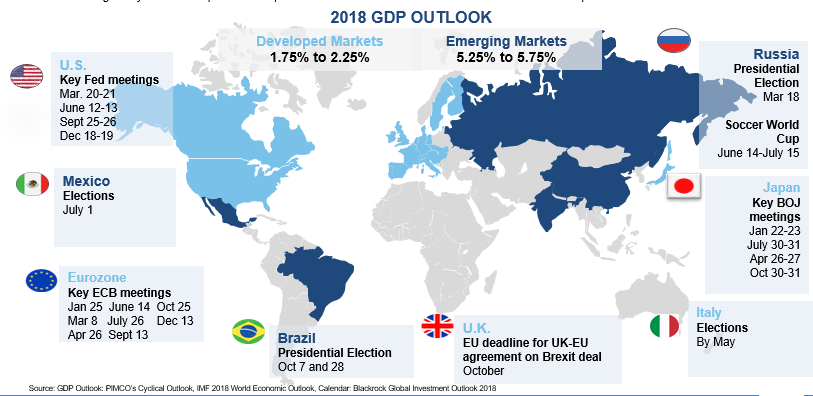By 2030, the top 10 world economies will include India, Indonesia, Brazil, Russia and Mexico. Maybe even Turkey. Probably neither France nor the United Kingdom…. Investing in and successfully rooting in emerging economies is essential to be part of tomorrow’s global economy. Using Sustainability and ESG criteria make it possible to seriously understand local contexts, calibrate strategies and adapt management practices.
Brazil, China, India, Indonesia are Experiencing Profound Societal Changes
Emerging economies are experiencing profound societal changes. A new mass middle class is developing there, craving for consumption. In response to these developments, social, economic and political infrastructure is under severe stress or simply unable to keep pace with the rapid development of these economies. Social and environmental pressures are cumulative and hinder development. For example:
- Brazil or India must invest massively in education and vocational training.
- For its part, China is aware that its development is based on growth that is far too energy-intensive. Five-year plans (2016 – 2020) are being implemented to reduce the energy and carbon intensity of growth. Indonesia is on the same line, increasing its investments in geothermal and other renewable energy.
New Consumption Patterns
In response, companies have a responsibility to invent new models of development and consumption: creating infrastructures with a low environmental footprint, developing education systems capable of training masses quickly and at low cost, developing new consumption patterns affecting low-income populations, or enabling the middle classes to reduce their environmental footprint. This is the key to the success of companies that are rightly and seriously considering rooting their presence in the markets that are shaping the future of the global economy.
Sustainability and the ESG Lens as Part of a Response
Sustainability and ESG analysis offer an analytical approach to help companies understand the dynamics in place, identify risks and opportunities and develop long-term competitiveness factors. Well understood, sustainability and non-financial analysis can ensure that companies are able to integrate and develop within these emerging economies. For example:
- Engage stakeholders to better understand risks and opportunities in non-transparent environments. Investments in emerging economies often present extra-financial, environmental, social and governance (ESG) risks that are as substantial as they are difficult to understand without a thorough local analysis. Using sustainability criteria to assess the operational practices of local partners allows to invest in Joint Venture with greater confidence for instance. Integrating sustainability criteria into a contract with local public authorities in charge of public enquiries or responsible for the development of infrastructure related to international companies’ projects can avoid many surprises.
- Are the available statistics reliable? What is the value of the legal framework for operations? What “social acceptability” (Licence to Operate) is it realistic to consider for a particular industrial project?
- The process of mapping and engaging project stakeholders takes on an even more critical meaning as it allows a better understanding of the realities that can have a very direct impact on a project’s competitiveness.
- Multi-polarize management. Western companies are often still organised around centralised “headquarters-subsidiary” logics. They must be able to move away from them in order to better identify and adapt management approaches to the different local dynamics. The local approach is all the more essential because, depending on the country, the societal dynamics shaping markets and managerial approaches differ widely: In Brazil, a strong civil society takes on the role of innovation actor to shape consumption patterns. In China, the government is leading the economy’s forces towards improved performance, including better environmental performance. In India, expectations of social responsibility from foreign industrial companies are high, particularly since the Bhopal disaster.
Successful companies are those that give the activities in these emerging markets a high degree of autonomy to adapt approaches and to be fully integrated into the local dynamics of these markets. Sustainability is in itself a transactional process, feeding the company’s performance around a principle of collective intelligence. The headquarters policy can provide a framework, but great flexibility must be allowed to adapt to the particularities of each local market. This can be called “multi-polarized” management.
The company is also above all a human experience. In this sense, and particularly in the case of emerging markets, promoting diversity represents an opportunity for companies: decision-makers and operational staff are needed to reflect the markets and societal dynamics in which companies operate in order to seize opportunities.
Following the example of diversity, sustainability encourages companies to see how topics perceived as environmental, governance or social constraints (example: forcing themselves to integrate people with a form of difference into an organisation) can in fact be used as a lever for innovation to give a new lease of life to existing managerial approaches (example: seeing diversity as an investment that makes it easier to understand the complexity of the world in management decision-making).
Competitiveness and Economic Survival
Clearly, sustainability strategies and tactics that have been successful in developed countries will not necessarily succeed in emerging countries. For today’s companies, understanding and mastering the nuances of these emerging markets, which are the new drivers of the emerging global economy, becomes imperative. The competitiveness of Western companies, and even their survival in the coming years, depends on it. Sustainability and ESG criteria help to understand contexts, calibrate strategies and adapt managerial practices.
Author of several books and resources on business, sustainability and responsibility. Working with top decision makers pursuing transformational changes for their organizations, leaders and industries. Working with executives improving resilience and competitiveness of their company and products given their climate and human right business agendas. Connect with Farid Baddache on Twitter at @Fbaddache.






